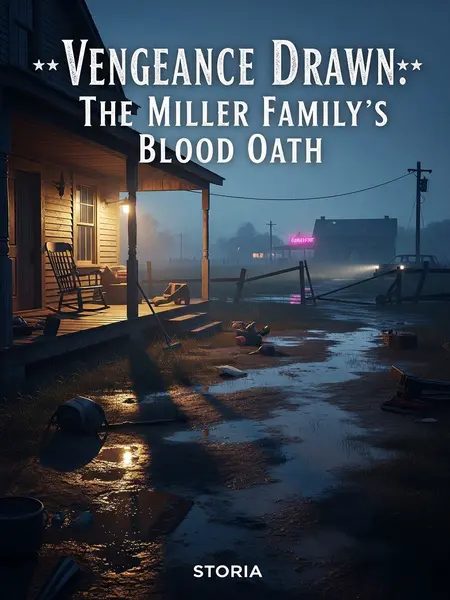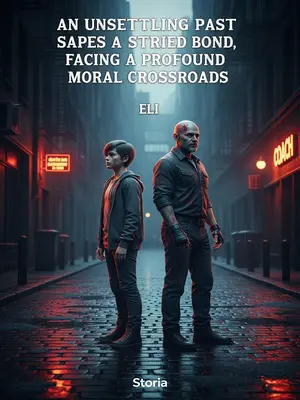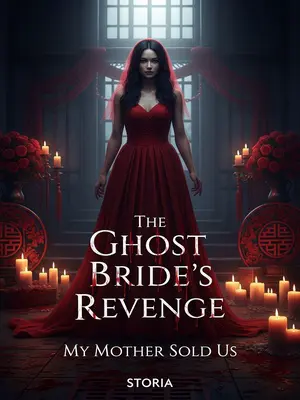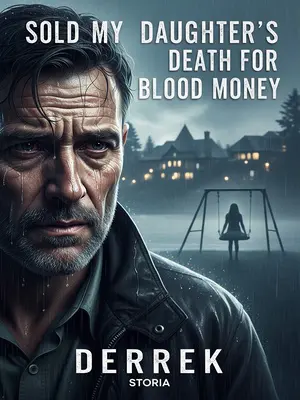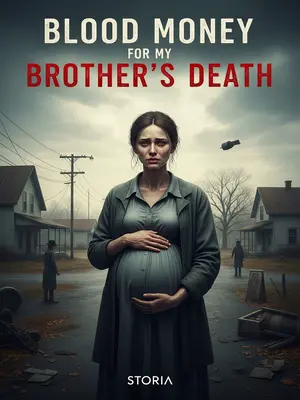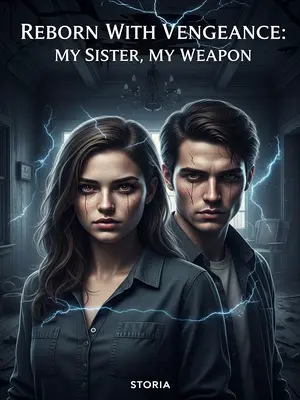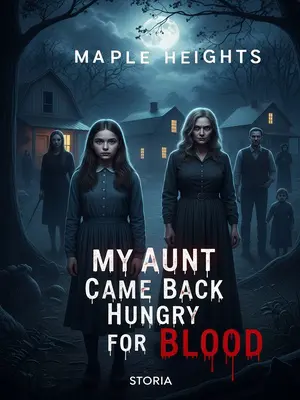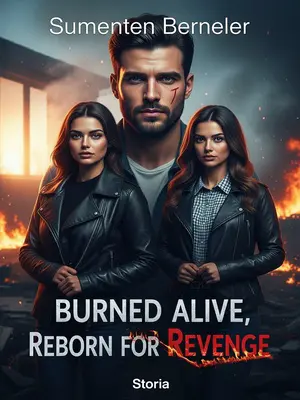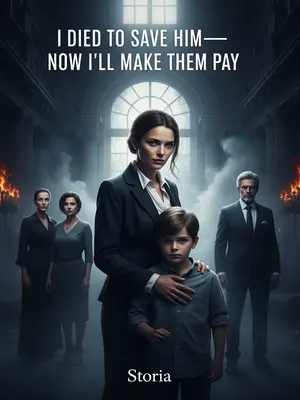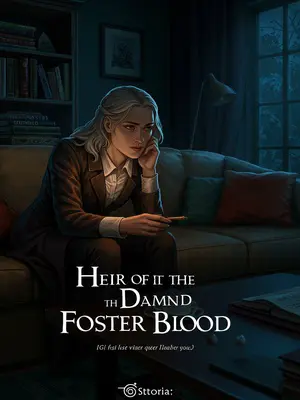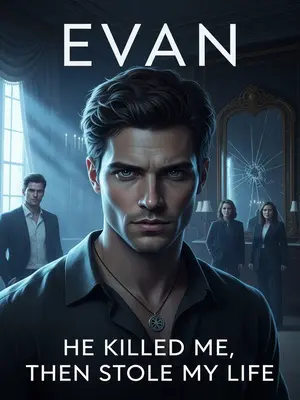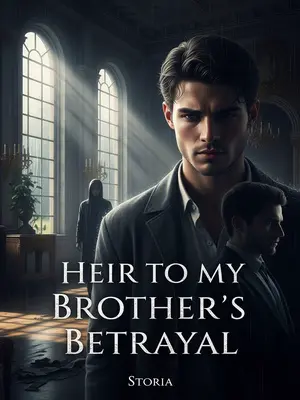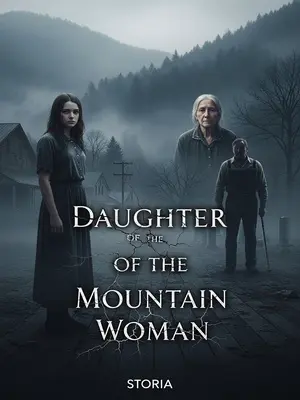Chapter 3: The Trap is Set
Someone piped up, "Tyler, you hit someone and went to the sheriff’s office. The teacher said you can’t go back to school. What now?"
There it was—the real world, creeping in. Even the wildest kids have to face the music. Their voices were smaller now, uncertain.
Tyler shrugged, unconcerned. "Then I won’t study. I’ve already talked to a buddy. If I don’t study, I’ll work as a promoter at his bar. If I do well, I can make over four grand a month."
He leaned back, tossing his hair like he was on reality TV. In his mind, he was halfway to being rich, famous, untouchable. You could hear the lie he told himself and the others.
The punks’ eyes widened, not at the money, but in disbelief: "You really know people who work in bars?"
It was the promise of escape—any way out, any shot at a bigger life. Four grand a month sounded like a king’s ransom to kids counting change for lunch.
Tyler clicked his tongue, basking in their awe.
He smirked, letting the moment stretch—his closest shot at celebrity. For a second, he almost looked human.
I said nothing, lit a cigarette, then set it on the table and kept playing my game.
I let the Marlboro smoke curl in the air, giving me something to do with my hands. My eyes never left the screen, but I watched every move in the reflection. My pulse steadied, ready for whatever came next.
The Marlboros soon caught Tyler’s attention. Not just that—there were several hundred bucks in cash beneath the pack.
He tried to play it cool, but his eyes darted to the money. The bait was set. Now I waited.
I thought, maybe after a night in lock-up, Tyler would’ve learned. Maybe he’d restrain himself.
It was a test. He hadn’t learned a thing.
He strutted over, loud and bold, like he owned the place. Marlboro between his teeth, the swagger of a boy who’s never been told no.
He picked up the Marlboros and took one out.
He looked at me, daring me to stop him, then lit up. His hands trembled just a bit—still a kid, for all his talk.
When I looked at him, he glanced back, bit the cigarette, and lit it.
It was all bravado. Deep down, the fear lurked in his eyes.
Soon he noticed the cash under the cigarettes.
His fingers twitched, undecided. The other kids watched, silent, waiting to see if he’d cross the line.
I gripped the knife in my pocket with one hand and reached toward him with the other.
For a heartbeat, the room held its breath. I let my hand hover, just close enough to show I wasn’t afraid.
At that moment, he suddenly turned and called out, "We’re fighting this afternoon. Who’s in?"
He raised his voice, shifting the spotlight, trying to distract from his theft. A classic Tyler move—when cornered, go on the attack. The other kids perked up, ready for trouble.
Everyone’s attention shifted.
They forgot the cigarettes and the money. Now there was the promise of action—something to rally around. Just what Tyler wanted.
I understood. He was hinting that he’d call people for a fight, showing he was ruthless, and that taking my cigarette was doing me a favor—so I shouldn’t make trouble.
That’s how it worked—power and respect traded in tiny gestures, each a test. Tyler was staking his claim, hoping I’d back down.
Normally, people would hesitate here.
Most folks would take the hint and leave, not wanting to tangle with Tyler and his crew. But I wasn’t most folks.
But these were just a bunch of punks.
I saw them for what they were—kids playing at being hard, desperate for attention. I’d seen the real thing. They weren’t it.
The girl tried to sound casual: "Tyler, who are we fighting this time?"
She grinned, nudging his arm. The act was an audition—for his approval, the group’s respect, or just something to do on a long afternoon.
From her tone, it was clear she often fought beside her sworn brother and felt proud of it.
Her words dripped with fake bravado, but she liked how the others looked at her. Reputation was everything.
Tyler grinned, "That old guy from yesterday. He called the cops on me and got me kicked out. I won’t let it slide. When the time comes, you all come—each of you slap him once. Dare to?"
He said it like a party, not a crime—trying to rally his army, make violence seem normal, even fun.
My face turned cold.
All the old anger flooded back. It was Carter he was talking about—Carter, who never hurt anyone. My hands tightened, knuckles pale.
I knew he was talking about Professor Carter.
There was no doubt. In that instant, I decided—none of them were walking out of here without learning about consequences.
The group all pretended not to care, saying, "Let’s do it."
They tried to sound tough, but uncertainty leaked in. None wanted to be the first, but nobody wanted to back down.
I sighed.
A deep, tired sigh—the kind you let out when you know what has to be done. I stood up, feeling the weight settle on my shoulders.
I stood, walked to the café door, and locked it from the inside.
The bolt clicked. A few heads turned, but nobody said anything. They were too busy hyping each other up to notice the trap closing around them.
At first, I thought, the debt had a debtor. Today’s matter had nothing to do with the other brats.
For a second, I thought about mercy—about letting the innocent go. But I remembered their laughter, the way they egged Tyler on, the pride they took in pain. Mercy had its limits.
But since they all intended to harm Professor Carter, I wouldn’t let a nest of maggots go free.
I made up my mind—this was their lesson. If they wanted to play at being wolves, they’d get a taste of the real thing.
This café was on the third floor, in a cramped room, main power controlled from downstairs.
Fire hazard, wires taped together, only one exit—a perfect cage. I glanced at the window. Three floors up, too far to jump and walk away clean.
In other words, these kids were now locked in by me, nowhere to escape.
They hadn’t noticed yet. Phones out, calling friends: "We’re going to fight! You coming?"
It was all a game—phones buzzing, screens lighting up, fingers flying over cracked glass. Oblivious to the trap, only thinking of the fight ahead.
Even the girl called, boasting, "Come with me this afternoon to beat up an old guy."
She said it like she was inviting them to homecoming. I wondered if she’d ever realize how ugly that sounded.
When she said "beat up," she emphasized it, as if about to do something glorious.
Her voice rang out, trying to make the moment memorable—trying to write herself into a bigger story.
Tyler grabbed my Marlboros again, passed them out, and pocketed the cash.
Predictable—greed always winning out. I watched, letting the anger build.
This guy had just gotten out of the sheriff’s office, but hadn’t learned a thing.
I shook my head. The system tries, but some kids are made of nothing but bad choices. Tyler was a lost cause.
Noticing my gaze, Tyler looked uncomfortable and snapped, "What are you looking at, old man? Not convinced?"
He puffed out his chest, desperate for approval. I stared him down, letting the silence work.
I asked, "You’re robbing me, aren’t you?"
My voice was calm, almost bored. Tyler’s face twitched. The other kids shifted, uneasy.
Tyler snorted impatiently.
He tried to laugh it off, but fear crept in.
He said, "Yeah, I’m robbing you. What are you going to do about it? You know who I am? Tyler Dixon from Lincoln High."
He spat out the name like it meant something. He waited for the fear he was used to, but I just stared back, unimpressed.
When he announced his name, he was full of pride, as if expecting fear.
But I just looked him in the eye and said, "Never heard of you. Just another nobody."
The words slapped him. He bristled, rage and embarrassment battling in his eyes. The others snickered, the mood shifting.
He got agitated, grabbed an empty beer bottle from under the table, and strode toward me.
He moved fast, anger making him reckless. The bottle caught the neon light, glinting green. The room held its breath.
After all, there’s a convenience store downstairs—plenty of snacks and drinks. Customers leave trash here all the time.
Easy to find a weapon. Tyler didn’t hesitate.
The other punks didn’t stop him. Instead, they crowded around, wanting a show.
They wanted a show—maybe they thought Tyler would win, maybe they just wanted to see what happened when he lost.
Tyler pressed the empty bottle to my head, sneering, "When I smash this on your head, you’ll love it."
His hand shook a little, but he kept his voice steady. A performance for his audience, hoping I’d flinch. I did neither.
He turned to the others, "Tell them to come to the café—we’re going to beat someone up."
His eyes gleamed, the others scrambled, phones out, voices rising, the frenzy building.
The punks all laughed, calling for backup.
All noise, all bluster. None realizing they were already trapped.
I took out my phone too.
The room quieted, just for a second, as they watched. I kept my voice calm, my movements steady.
Tyler thought I was calling for help. He pressed the bottle to my chest and sneered, "Calling for backup? Let’s see who brings more people."
He grinned, but I saw the fear behind it—a boy who’d never been truly challenged.
I glanced at him, didn’t call, but sent a voice message: "I’m at Joe’s convenience store."
The words were simple, but the meaning was clear. Help was coming—real help.
He snatched my phone, but when he saw the message, he burst out laughing: "Hilarious, I thought you were calling for help. Look who he messaged."
He waved my phone, turning the moment into another joke. They laughed, but it was nervous now.
The message was sent to my Uncle Frank.
Frank Miller—every cop, every business owner, every politician in fifty miles knew the name. If you needed something done, you called Frank—once.
Tyler laughed, "You’re this old and asking your uncle for help? Don’t tell me he’s some gangster. How old is he?"
He tried to play it off, but I saw the questions in his eyes. Frank’s reputation traveled farther than Tyler ever would.
The punks all laughed along.
A hollow sound, forced. None of them really knew what was coming, but they could sense a storm on the horizon.
"Now you’re calling your uncle. Are you going to call your parents next?"
"So old and still calling your parents when you’re in trouble?"
"Come on, call your mom over to entertain us."
"What gang does your uncle belong to?"
They were reaching, desperate to keep control as it slipped away.
I said quietly, "My uncle is the chairman of the Miller family council."
The words fell heavy. The room went still, uncertainty flickering across faces.
Tyler looked puzzled: "What? Which gang is that?"
He was trying to act like he didn’t care, but I could see the questions working in his eyes.
As soon as he finished, the power went out.
The world snapped to black. Every computer died, the lights fizzled. Someone’s breath hitched—fear, raw and real, for the first time tonight.
The little delinquent girl muttered, "Why’d the power go out? Is it out everywhere?"
Her voice quavered, a crack in the tough mask. She fumbled for her phone, the screen’s glow lighting her worried face.
She went to the window, looked out, and gasped, "What’s going on? The road outside is blocked."
She pressed her face to the dirty glass, eyes wide. For the first time, she looked like the child she really was.
Everyone crowded to the window.
They pushed and shoved, desperate for answers, for escape. Fear brings out the worst in people.
On the road, four bulldozers blocked the entrance, yellow tape strung up.
It was unmistakable: the road was closed, and so were their options. Realization dawned.
It looked like construction, but after parking the bulldozers, the workers just walked away.
In Miller territory, everyone knows to mind their business when the bulldozers show up.
With four bulldozers blocking the road, even the cops couldn’t drive in. Even a tow truck would be useless.
We’d done this before—shut down neighborhoods to send a message. Tonight, the message was for Tyler and his crew.
While they stared outside, I kicked the table.
The heavy oak table crashed, splintering on the linoleum. Keyboards and cans scattered, blocking the exit. The noise startled them from their panic.
The computers and table crashed to the floor, blocking the doorway—their only escape.
A few kids screamed. Tyler’s face went white, bravado draining with the color.
They were startled. Tyler shouted, "Are you crazy?"
His voice broke, high and scared. The others backed away, tripping over chairs.
